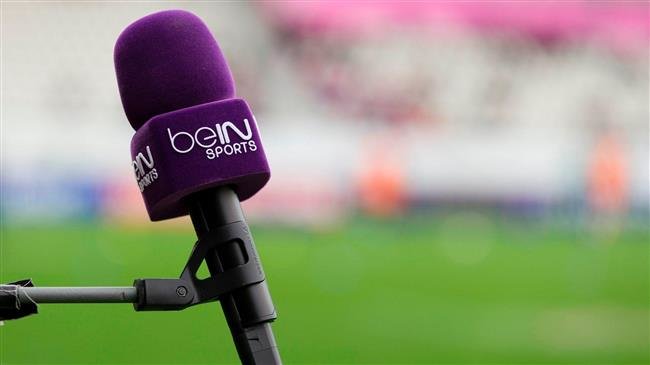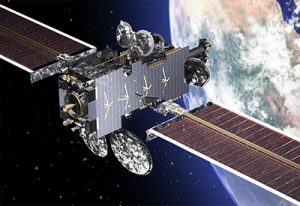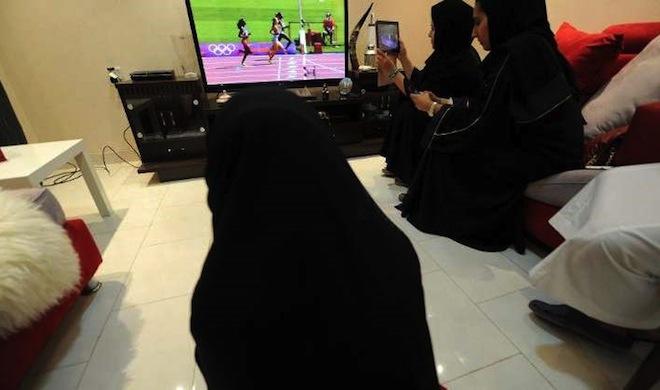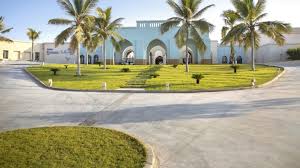
20 December 2018
On 18 December, the World Trade Organisation (WTO) announced that it would investigate Qatar’s allegations of intellectual property breaches against Saudi Arabia. A WTO official said that the organisation had agreed “to establish a panel to rule on Saudi Arabia’s alleged failure to provide adequate protection of intellectual property rights.”
As reported by the AIB last June the Qatari pay-tv operator beIN, which owned exclusive rights to the FIFA World Cup 2018, had been the target of what it said was a widespread Saudi-backed piracy operation carried out through the beoutQ TV platform, an operation aimed at harming its services, commercial interests and Qatar’s reputation.
All signs point to the fact that beoutQ, which is broadcast from Arabsat, was started soon after Saudi Arabia and other Gulf States (and Egypt) cut off diplomatic and economic relations with Qatar in June 2017.
In August 2017 beIN, together with leading sporting organisations and broadcasters, called for beoutQ to be shut down. Broadcasters, such as the BBC and Sky highlighting the threat from pirated content broadcast on beoutQ piracy called on the European Union to take action.
Qatari request for consultation rejected by Saudi Arabia
An October request by Qatar for consultations with Saudi Arabia to resolve this matter concerning the protection of intellectual property rights, was turned down by the Saudis, who claimed that the matter had no legitimate connection to the WTO or to compliance with WTO rules, but was the result of national security concern.
Qatar is seeking one billion dollars in compensation from Saudi Arabia.
WTO agreed to the Qatari request, sets up a panel
Following the Saudi refusal to engage in talks to resolve this dispute, Qatar sent a communication to the WTO, asking for a panel to be established to consider the issue.
On 18 December the WTO announced that it would establish a panel to look into the matter.
The Geneva-based WTO deals with the global rules of trade between nations. Its main function is to ensure that trade flows as smoothly, predictably and freely as possible.
However, arbitration procedures may take a long time to reach conclusions that are not always accepted by the party found to be in breach of WTO rules.

11 January 2018
Arab Satellite Communications Organization – Arabsat – has announced that during CABSAT (14th-16th January 2018 at Dubai International Convention and Exhibition Centre) it will showcase the capabilities and services of its Arabsat 6th generation satellites. Arabsat is preparing to launch two new satellites in 2018 to complete its 6th generation satellites project, which consists of four satellites.
Eng. Khalid bin Ahmed Balkheyour, President & CEO of Arabsat, said that at CABSAT Arabsat will also showcase the latest agreements that enhance its Hot Spot 26° East, and will announce the signature of new contracts and agreements.
On January 3-4, Arabsat held its 160th Board of Directors meeting in Istanbul, Turkey, under the chairmanship of Dr. Nasser Al-Hujailan, Deputy Minister of Culture and Information in Saudi Arabia. On the agenda were the results of 2017 as well as the estimated budget for 2018.
(Source: Arabsat press release)

10 October 2017
With an 86% reach of satellite TV households in the Kingdom of Saudi Arabia (KSA), Arabsat is now gearing up to offer the next generation video and connectivity experience to viewers.
A recent analysis by Frost & Sullivan, global research and consulting company finds that Arabsat, one of the world’s leading satellite operators, reaches 86% of satellite TV households in the Kingdom of Saudi Arabia (KSA) and nearly 78% in GCC, including Bahrain, Kuwait, KSA, Oman, Qatar, and UAE.
Arabsat, carries over 500 TV channels, 200 radio stations, pay TV networks and a wide variety of HD channels reaching nearly 4 million households in GCC. Operating six satellites at 3 orbital positions, the operator offers the youngest regional fleet with widespread coverage over the region.
“Satellite services continue to be an essential way of providing entertainment and communications across the entire MENA region where network connectivity is not uniform,” says Y.S.Shashidhar, Managing Director, Frost & Sullivan MENA. “Arabsat with its constant emphasis on innovativeness and partnerships is firmly poised to help its broadcaster customers connect to a wide user base in the region.”
Frost & Sullivan’s Research Director, Vidya S Nath adds, “Arabsat’s exclusive and strategic partnerships with leading international and regional broadcasting networks have enabled it to establish a significant footprint over GCC, especially KSA.”
Frost & Sullivan finds growing demand among end users for high quality of transmission resulting from the rapid increase in the penetration of 4K and HDR TV sets, receivers, Internet streaming boxes as well as cellular hand-held devices. Broadcasters and service providers eyeing viewership retention for boosting their revenue need partners that can offer optimal quality of transmission as well as the widest reach.
“Innovativeness to ensure the highest quality of experience for the viewer stands as our core undertaking and motto,” says Khalid Balkheyour, President and CEO, Arabsat. “Such keenness on innovativeness has both motivated and helped us build an exclusive portfolio of leading regional networks in the region, including the foremost MBC Pro Sports along with exclusive rights to broadcast the Saudi Football League, MBC full HD bouquet, and Rotana full HD bouquet,” he said. “Alongside, to establish our footprint in the Maghreb region, we have launched several strategic initiatives. We want to offer the viewers in Maghreb unparalleled content offering and hence we have on board exclusive access to the complete Mauritanian bouquet, the complete FTA MBC bouquet, the My-Maghreb package as well several other attractive channels across different genres.”
ARABSAT’s ability to ensure localisation combined with international diversity of content makes it a platform of choice for both broadcasters as well as viewers in the MENA region. It has a strong portfolio of exclusive first-class channels for the region such as France 24 Arabic and English HD, TV5 Monde Style HD, among several others.

1 October 2017
Arab Satellite Communications Organization – Arabsat – holds its 9th annual Satellite TV Broadcast Forum on the 3rd and 4th October 2017 in Rotana Resort, Salalah, Sultanate of Oman, under the patronage of His Excellency the Omani Minister of Information.
The Forum is attended by Arab and international media figures as well as owners and officials in the satellite television broadcasting industry and distinguished delegates from the Arab League and the Omani government.
Arabsat organises this forum annually to establish close contact with its customers, updating them on the latest trends and identifying their needs. During the Forum there will be a number of sessions focusing on TV HD satellite Broadcasting Technologies and related subjects.
Khalid bin Ahmed Balkheyour, President & CEO of Arabsat, thanked the Government of His Majesty Sultan Qaboos bin Said of Oman represented by the Ministry of Information for the kind patronage and support received by Arabsat from the Omani Ministry of Transport and Telecommunications.
Balkhyour added that Arabsat will also showcase the latest satellite TV broadcasting technologies offered by the 6th generation satellites to its customers.
(Source: Arabsat press release)

15 September 2017
Talia Limited, a leading communication provider serving the Middle East, Africa, Europe and the Americas, announces the partnership with Arabsat of a new 10-channel video uplink to the Arabsat Badr-7 satellite located at 26°E.
The service will offer both SD and HD channel uplinks and will form the basis of a new high-power Ku-band neighbourhood over Iraq. Content will be up-linked from the Talia Teleport in Raisting, Germany and monitored for quality in the Talia NOC in Erbil on the Badr-7 located at 26E.
With many content creators looking to new audiences, the neighbourhood of channels will provide a voice and original Iraqi-themed programming to millions of currently underserved and underrepresented citizens. Following scheduled meetings at IBC in September, we expect the number of to increase further.
With Talia’s strong regional presence in Iraq and well-established customer base, Talia are ideally placed to serve the region.
“This partnership cements our on-going commitment to Arabsat,” stated Talia CEO and President Alan Afrasiab. “This service will start with 10 channels but we believe this will expand as more broadcasters reach the growing number of viewers in the region. The video platform continues to build on our existing broadcast services and experience and the Middle East’s leading communications provider.”
Khalid Balkheyour, Arabsat President & CEO said “Indeed, we have conducted cautious surveys during the course of selecting our teleport partner to launch Arabsat 1st DTH platform from Germany. We’ve reached the conclusion that Talia with its globally recognized brand in terms of adequate and reliable Satellite and Terrestrial Networks offering various facilities connecting Middle east and Europe with high monitoring capabilities and quality of service that provide excellent solution to ARABSAT DTH Services from Europe, of which shall provide Arabsat international & regional broadcasters with the optimum quality of service.”
(Source: Arabsat press release)




